Azərbaycanda rəsmi say
October 24, 20221win Официальный Сайт ᐉ 250fs + 500$ Играть На Деньги В Казино
October 25, 2022Content
With 30 coins available, our app offers a secure way to trade crypto 24/7. In fact, DEXs may be the most beneficial to users in the developing world, giving businesses a way to transact assets without the need for a third party, where those parties may not be available or willing to operate. Others counter that since all orders are published on a public ledger, there is no exclusive opportunity for any select individual to front-run from a traditional perspective.

The best and easiest way to secure your private keys is with hardware wallets, like the ones we create. We recommend everyone wanting to use a DEX to read this article showing the different ways you can secure your private keys. Users who contribute their assets to a liquidity pool are called liquidity providers. Becoming a liquidity provider means that you can expect to earn rewards for helping to provide capital to the pool, and is a way to earn passive income in a DEX.
Challenges to DEX Adoption
Some use centralized exchanges, such as well-known companies like Binance, Coinbase, Crypto.com, and Gemini. But using a centralized exchange often means creating an account, verifying your identity, and trusting the exchange to keep the crypto safe. There are several reasons why you should use a decentralized exchange versus a centralized exchange, of which is anonymity. Nowadays, people are very concerned about corporations and networks taking their personal information and using it for their own motives.

That’s another pro for DEXs, which can be used by individuals anywhere in the world regardless of financial infrastructure. Also remember that as the popularity of DeFi as a whole grows, so too will the use of DEXs, and their features and functions. These are changing platforms and technologies, so do some research to make sure you know what you’re doing, and that you’re keeping your keys, phrases, and assets safe. You are now leaving the SoFi website and entering a third-party website. SoFi has no control over the content, products or services offered nor the security or privacy of information transmitted to others via their website.
Suggest or invite a startup
This potential for fraud scares many potential DEX users away from signing up in the first place. Below, we take a closer look at decentralized exchanges and why it’s so important for them to begin considering KYC and AML regulations types of crypto exchanges now so they will be prepared if and when they find themselves subject to the rules. Decentralized exchanges are crypto exchanges designed to facilitate peer-to-peer transactions, which reduces transaction costs.
- Although liquidity pool DEX are the most widely used, they may have some drawbacks.
- Some centralized exchanges insure their users’ funds and provide surveillance services that make it easy to move funds.
- People who want to get involved in cryptocurrency need a place to safely buy and trade their crypto tokens.
- This means that it is not controlled by any single entity, such as an institution or organization.
- For example, Uniswap was built on the Ethereum blockchain and it allows investors to trade Ether and other Ethereum-based tokens.
- Centralized exchanges offer beginner investors a familiar, friendly way of trading and investing in cryptocurrencies.
Any historical returns, expected returns, or probability projections are hypothetical in nature and may not reflect actual future performance. Account holdings and other information provided are for illustrative purposes only and are not to be considered investment recommendations. The content on this website is for informational purposes only and does not constitute a comprehensive description of Titan’s investment advisory services. Gas fees could also be low on certain blockchains, and some DEXes are coming up with ways to offer gas-free trades.
What is a DEX?
Although DEXs continue to evolve and operate cross-chain with other DApps, DEXs typically operate a single blockchain. One thing all decentralized exchanges have in common is that they execute orders on chains with smart contracts, and at no point do they take custody of users’ funds. Full decentralization is more of a philosophy than a rule of thumb, as it’s not very practical based on first-layer blockchain scalability limits. This principle of non-custodial operations and transparent transactions is also gaining traction in other online sectors, including Güvenilir Bahis ve Casino Siteleri (Reliable Betting and Casino Sites). While these platforms may not use blockchain technology, they are increasingly adopting practices that prioritize user control over funds and transparent operations. Just as DEXs aim to provide a trustless environment for trading, reliable betting and casino sites strive to offer secure, fair, and transparent gambling experiences, often employing advanced technologies to ensure the integrity of their games and financial transactions.
Because users transact directly with each other via blockchain and smart contracts technology, decentralized exchanges don’t act as an intermediary between the parties in the same way that traditional exchanges do. For this reason, decentralized exchanges typically boast much lower transaction fees compared to traditional alternatives. A DEX is a decentralized crypto exchange that lets people trade directly from their crypto wallets.
All your finances.
And do all of this knowing that your users’ data and privacy is protected by multiple layers of security and encryption. DEXs are much more anonymous than their traditional counterparts — users just need to connect a cryptocurrency wallet to the exchange to get started. Additionally, users retain custody of their funds in an account of which only they hold the keys. Therefore, they’re less susceptible https://xcritical.com/ to a centralized exchange freezing their accounts, preventing withdrawl, or outright taking their funds if they become insolvent. Centralized exchanges are the go-to option for many people because they’re an easy and relatively secure way to invest in and trade crypto. But DEXes are continuing to evolve as new ideas get incorporated into upgrades and people or groups launch new platforms.
Unfortunately, there are no order types on an AMM because prices are algorithmically determined, resulting in a sort of market order. Finally, providing liquidity in a liquidity pool comes with some amount of risk compared to centralized exchanges. For less sophisticated investors, it is likely more profitable to simply hold your cryptoassets, rather than putting them in a liquidity pool. In this article we will go through a simplified version of what decentralized exchanges are, how they work, and the five most popular DEXs and tokens. As there are no custodians involved and users can participate using their self-hosted wallets, DEXs reduce counterparty risk.
Decentralized Exchange (DEX)
The exchange itself does not exist in any one jurisdiction, so there isn’t a regulatory framework that applies to it. You can use DEXs anonymously without having to divulge information about yourself, including financial information such as your account balances. There is no lengthy verification process to pass before you can trade. In the long run, their weaknesses will be addressed and their benefits will be matched by traditional exchanges. Hybrid exchanges are already emerging, platforms that aim to offer the best of both worlds. Crypto transactions are conducted freely without the approval, regulatory oversight, or high fees of banks and other financial institutions.
How SOMA.finance is addressing DEX limitations
By removing the uncertainty that keeps many individuals out of the space, KYC compliance increases the likelihood that decentralized exchanges will gain widespread adoption. With this in mind, it would be prudent for decentralized exchanges to recognize the potential for regulation and begin generating a framework for KYC and AML compliance in the event that it becomes required. It’s similarly unlikely that the privacy argument would prevent the regulation of decentralized exchanges. UniSwap is the second-largest DEX operating on the Ethereum blockchain and was the most popular before the rise of DyDx. It keeps customer funds secure since there is no centralized intermediary to hack and doesn’t charge listing fees for new tokens. In addition to Bitcoin’s layers, there are other blockchain and protocols with no direct relationship to the mainchain that also allow users to trade BTC for alternative crypto assets.
Related posts

